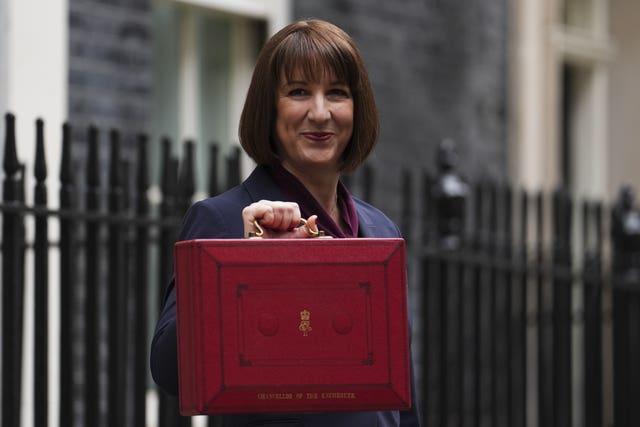Sir James Dyson says Labour ‘killing off family businesses’ with inheritance tax
The businessman warned that small firms and start-ups will ‘suffer’, while private equity and public companies escape the taxation.

Billionaire inventor Sir James Dyson has taken a swipe at the Government for “eviscerating” UK family businesses with the inheritance tax measures announced in last week’s Budget.
The businessman warned that small firms and start-ups will “suffer”, while private equity and public companies escape the taxation.
Chancellor Rachel Reeves used her first Budget to make changes to inheritance tax, including reducing reliefs for agricultural and business property from April 2026 in a bid to raise more funds for the public sector.
For assets over £1 million, inheritance tax will apply with an effective rate of 20% – half the standard 40% rate.
Sir James, who, as well as founding technology firm Dyson, owns a commercial farming business, expressed his frustrations with the new Chancellor’s tax changes.
He wrote in The Times: “Make no mistake, the very fabric of our economy is being ripped apart.
“No business can survive Reeves’s 20% tax grab. It will be the death of entrepreneurship.”
He added: “Every business expects to pay tax, but for Labour to kill off homegrown family businesses is a tragedy.
“In particular, I have huge empathy for the small businesses and start-ups that will suffer.”
Meanwhile, companies owned by overseas families, and private equity-owned and publicly-listed firms that are “about maximising short-term profit” will not pay the same taxes, he said.

The entrepreneur and his family have a fortune of about £20.8 billion, according to the latest Sunday Times Rich List.
Ms Reeves has defended the proposed reforms to inheritance tax by claiming it is not “affordable” to keep the current system.
She has said “only a very small number of agricultural properties will be affected” by the changes, with Budget documents stating the Government wants to restrict the “generosity” of tax relief for the “wealthiest estates”.





